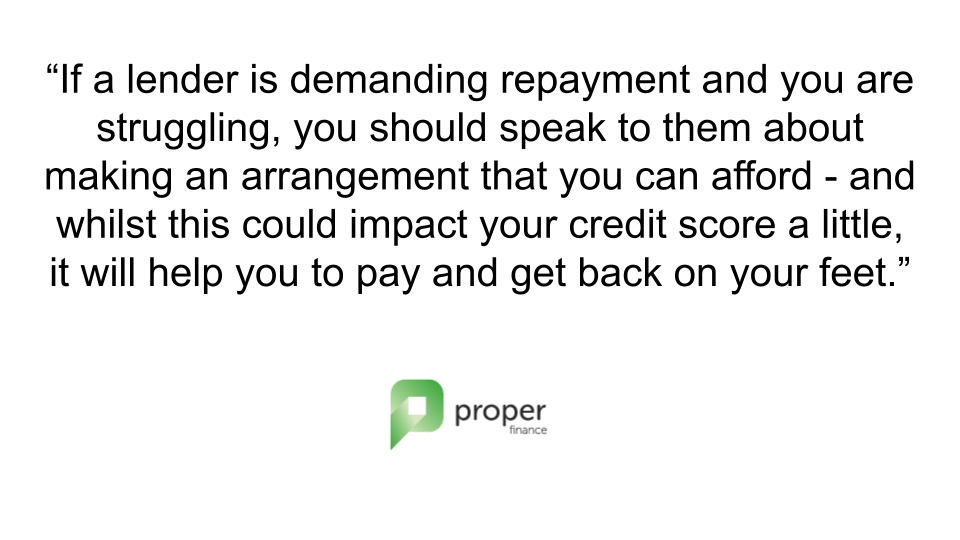
What is a Senior Stretch Loan?
A senior stretch loan can help you purchase a property …
If your lender is demanding repayment for a loan that you are unable to pay, you have certain rights as a borrower that may be worth knowing. It might feel like the calls are overwhelming, and you are getting letters piling up and it is causing you a lot of stress. But you do not need to worry. If you follow some basic steps below, you can speak to the lender and find a very legitimate way to repay your loan over a long period and avoid any additional late fees, follow ups or damage to your credit score.

Speak to the lender (don’t avoid them!) – If you are feeling pressured by the mounting letters and constant phone calls, one of the worse things you can do is ignore the lender. Often, they are only chasing you through all these means because you are not responding and simply explaining your situation and coming up with a repayment plan will put the lender at bay and stop the calls from continuing. By speaking to the lender, you may able to come up with a more affordable arrangement, such as paying over lower amounts over a longer time period, until your debt is eventually covered. This will help to get the lenders off your back and get you to be eventually being debt-free.
Make an arrangement to pay – An arrangement to pay means that your loan terms are changed into an arrangement. This is where you might be able to prolong payment or negotiate better terms. Some lenders might say, ‘OK, you owe £117, we will take £100 if you pay today.” And others will allow you to split repayments over several more weeks and months, whilst freezing the interest. By being in arrangement, the lenders know when to expect the next payments, so the calls and letters will stop.
Speak to a debt management company – If you are struggling with long term debt issues and have too many cards, bills and loans to pay off, you might look at speaking to a professional debt management company. So are purely free as charities and others charge a fee, but they can help to organise all your monthly income, bills and debts and write to your debtors so that they will no longer chase you.
The downside is that you will typically need to be committed to this plan and this could mean sticking to your budget for 1 to 5 years, with little option to change your spending patterns. You will know exactly how much you need for food, entertainment and other bills each month and you probably won’t be able to apply for additional credit or divert from this plan.
Speak to a family member – It never hurts to confide in a close family member, who may be able to offer advice or some short-term financial assistance until you get back up on your feet. Whether it is a parent or a sibling, you might be surprised how much they can help and you could find yourself in a much better financial position after a bit of time.
There are certain rights that borrowers have if their lender is demanding repayment for an unpaid loan, including the following:
If you have been unable to repay a loan, it is likely that your lender will contact you or that you will be contacted via a third party debt collection agency hired by the lender.
You may be threatened with court action and, if not dealt with, this could escalate to your lender taking you to court. However, they need to follow strict protocol in order to do this legally. A debt collection agency cannot immediately take you to court – they will need to have a fair reason and will need to send a letter beforehand to offer advance warning and give you a chance to make a payment.
If you do go on to receive a county court judgement (see CCJ loans), the worst thing that you can do is to ignore it as this could actually worsen your debts. Start a dialogue with your creditor and see if you can reach an agreement before the case escalates to court action. You can accept the county court judgement, request changes or reject it completely – however, you will need a very significant reason in order to reject the judgement.
In the majority of cases, you cannot go to jail for missing your loan repayments. This is true for credit cards, loans, utility bills, store cards and many other types of loans because it is a civil matter. That means, even if you are still unable to repay them or meet a new agreement, you cannot go to jail.

A senior stretch loan can help you purchase a property …

A mortgage offer officially lasts for 3-6 months depending on …

If you have purchased a car through a dealership using …